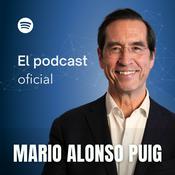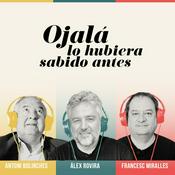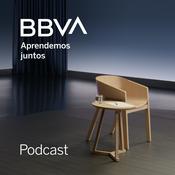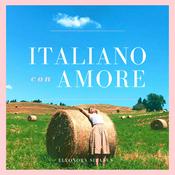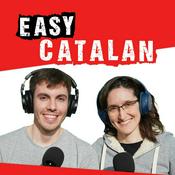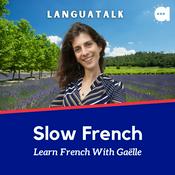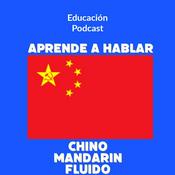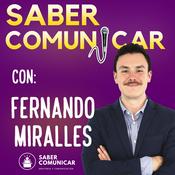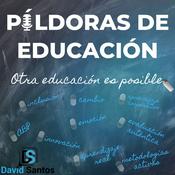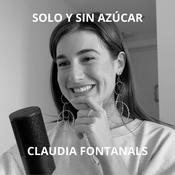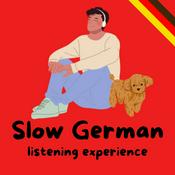119 episodios
S6 - E3: Growing Heirloom Mums, Building Healthy Soil with Jessica Hall of Harmony Harvest Farm, Pt. II
03/2/2026 | 19 minWhat priorities excite you? Heirloom Chrysanthemums, soil health, and contributing back to the community are exciting priorities for Harmony Harvest Farm. In the previous episode, we learned the vision of Harmony Harvest Farm and their overarching aim to help people live and experience a better life through fresh flowers. Our returning guest, Jessica Hall, talks with us about her passion for growing heirloom mums and building healthy soil, and how these are two essential ingredients for achieving their vision.
Jessica emphasizes the importance of engaging your roots and making them stronger. For Jessica and her team, the farm business roots started with research, collection, and cultivation of heirloom mums. Mums are dear to Jessica's heart and are a phenomenal crop with great potential for small-acreage flower farmers in Virginia and beyond.
To learn about their heirloom chrysanthemums, plan a pick-your-own flower trip, experience a virtual mum summit and on-farm educational events, or order a floral bouquet, please visit Harmony Harvest Farm's website.
To register for the Virginia No-Till Alliance (VANTAGE) Winter Conference scheduled for Wednesday, February 18, 2026, at the Rockingham County Fairgrounds, please visit https://www.virginianotill.com/winter-conference. Speakers of note include Dr. Ray Weil and James Hoorman.
We can all be 4 The Soil, for the future! Here is how with four principles:
1) Keep the soil covered -- with living plants and residue. Cover crops are our friends and allies; avoid leaving soil bare.
2) Minimize soil disturbance -- Practice no-till or gentle tillage as much as possible in your field or garden.
3) Maximize living roots -- for the longest time to improve biodiversity, soil structure, and life in the soil.
4) Energize with diversity -- aboveground and belowground with high-quality food for soil and plants, and integration of livestock on cropland.
If you are interested in art and framing the 4 The Soil posters for your office or home, the 16” by 20” posters are available for purchase and printing as single posters or a set of five posters.
If you have questions about soil and water conservation practices, soil health principles, and composting practices to restore the life in your soil, call or visit a USDA Service Center, a Virginia Soil and Water Conservation District office, or your local Virginia Cooperative Extension office.
4 the Soil: A Conversation is made possible with funding support from the National Fish and Wildlife Foundation and The Agua Fund. Other partners include the USDA Natural Resources Conservation Service; Virginia Cooperative Extension; Virginia State University; Virginia Department of Conservation and Recreation; and partners of the Virginia Soil Health Coalition.
Disclaimer: Views expressed on this podcast are those of each individual guest.
To download a copy of this, or any other show, visit the website 4thesoil.org. Music used during today’s program is courtesy of the Flip Charts. All rights reserved. 4 the Soil: A Conversation is produced by On the Farm Radio in collaboration with Virginia Tech. The host and co-hosts are Jeff Ishee, Mary Sketch Bryant, and Eric Bendfeldt.S6 - E2: Living a Beautiful Life through Fresh Flowers with Jessica Hall of Harmony Harvest Farm, Pt. I
20/1/2026 | 18 minHow can we live and enjoy a better life? Harmony Harvest Farm began with a lofty dream in 2011 and a vision of helping people to live and experience a better life through fresh flowers. Jessica Hall of Harmony Harvest Farm and Flower Genius joined Mary, Jeff, and Eric for a conversation about the farm business's vision, mission, values, and history.
Jessica owns and operates the farm business with her mom and sister in Weyers Cave, Virginia. Jessica and her family believe Virginia-grown and American-grown flowers should be accessible to everyone, everywhere. To fulfill this vision and mission, they built up soil health and nourished their flowers from the start, while being mindful of good land management, soil erosion, irrigation needs, and bed layout to fit the topography.
Jessica emphasizes that a sustainable business that lives its values needs a complete toolbox with the right tools at the right time for the right application. For Jessica and Harmony Harvest Farm, the toolbox includes a strong, growing network of personal and business mentors.
To learn about their heirloom chrysanthemums, plan a pick-your-own flower trip, experience a virtual mum summit and on-farm educational events, or order a floral bouquet, please visit Harmony Harvest Farm's website.
We can all be 4 The Soil, for the future! Here is how with four principles:
1) Keep the soil covered -- with living plants and residue. Cover crops are our friends and allies; avoid leaving soil bare.
2) Minimize soil disturbance -- Practice no-till or gentle tillage as much as possible in your field or garden.
3) Maximize living roots -- for the longest time to improve biodiversity, soil structure, and life in the soil.
4) Energize with diversity -- aboveground and belowground with high-quality food for soil and plants, and integration of livestock on cropland.
If you are interested in art and framing the 4 The Soil posters for your office or home, the 16” by 20” posters are available for purchase and printing as single posters or a set of five posters.
If you have questions about soil and water conservation practices, natural resource concerns, and soil health principles and practices to restore the life in your soil, call or visit a USDA Service Center, a Virginia Soil and Water Conservation District office, or your local Virginia Cooperative Extension office.
4 the Soil: A Conversation is made possible with funding support from the National Fish and Wildlife Foundation and The Agua Fund. Other partners include the USDA Natural Resources Conservation Service; Virginia Cooperative Extension; Virginia State University; Virginia Department of Conservation and Recreation; and partners of the Virginia Soil Health Coalition.
Disclaimer: Views expressed on this podcast are those of each individual guest.
To download a copy of this, or any other show, visit the website 4thesoil.org. Music used during today’s program is courtesy of the Flip Charts. All rights reserved. 4 the Soil: A Conversation is produced by On the Farm Radio in collaboration with Virginia Tech. The host and co-hosts are Jeff Ishee, Mary Sketch Bryant, and Eric Bendfeldt.S6 - E1: Rooted in a Passion for the Earth, Soil, and the Bioeconomy with Ms. Fatema Mohajir
06/1/2026 | 18 minA desire and passion for caring for the earth, soil, and the natural environment can start at a young age.
Fatema Mohajir and her family are from the Bamyan province in central Afghanistan. As a child, Fatema's family lived in Iran, where her father worked at a large-scale vegetable farm. Fatema's father and older brother inspired her interest in soil science and farming.
Fatema studied at Kabul University and graduated in 2020. As a part of her studies, Fatema participated in a year-long Permaculture Program led by Rosemary Marrow from Australia. After graduating, Fatema received a scholarship to study in Uzbekistan, where she focused on bioeconomy and irrigation.
Fatema moved to the United States in 2023 and has been working at the Farm at Willow Run in Harrisonburg for the past two seasons. Fatema shares about her interest in organic farming and her overall aim to be a role model for others in caring for the earth, soil, and the bioeconomy.
To learn about Virginia Mennonite Retirement Community's farm-to-table initiative and the Farm at Willow Run, please visit https://www.vmrc.org/the-farm. You can listen to Rosemary Morrow's Journey to Permaculture on The Permaculture Podcast.
We can all be 4 The Soil, for the future! Here is how with four principles:
1) Keep the soil covered -- with living plants and residue. Cover crops are our friends and allies; avoid leaving soil bare.
2) Minimize soil disturbance -- Practice no-till or gentle tillage as much as possible in your field or garden.
3) Maximize living roots -- for the longest time to improve biodiversity, soil structure, and life in the soil.
4) Energize with diversity -- aboveground and belowground with high-quality food for soil and plants, and integration of livestock on cropland.
If you are interested in art and framing the 4 The Soil posters for your office or home, the 16” by 20” posters are available for purchase and printing as single posters or a set of five posters.
If you have questions about soil and water conservation practices, natural resource concerns, and soil health principles and practices to restore the life in your soil, call or visit a USDA Service Center, a Virginia Soil and Water Conservation District office, or your local Virginia Cooperative Extension office.
4 the Soil: A Conversation is made possible with funding support from the National Fish and Wildlife Foundation and The Agua Fund. Other partners include the USDA Natural Resources Conservation Service; Virginia Cooperative Extension; Virginia State University; Virginia Department of Conservation and Recreation; and partners of the Virginia Soil Health Coalition.
Disclaimer: Views expressed on this podcast are those of each individual guest.
To download a copy of this, or any other show, visit the website 4thesoil.org. Music used during today’s program is courtesy of the Flip Charts. All rights reserved. 4 the Soil: A Conversation is produced by On the Farm Radio in collaboration with Virginia Tech. The host and co-hosts are Jeff Ishee, Mary Sketch Bryant, and Eric Bendfeldt.S5 - E26: Flowers, Pollinators, Health, and Peace with Dr. Christine Mahoney, Pt. II
23/12/2025 | 19 minHow can we care for the soil and farm for better health outcomes?
Dr. Christine Mahoney of the University of Virginia's Frank Batten School of Leadership and Public Policy and Wayflowering Flower Farm joins Mary and Eric for a conversation about soil health, regenerative farm design, and organic flower farming.
Dr. Mahoney shares how better outcomes, such as health, peace, and tranquility, can be achieved through enriching the soil, enhancing biodiversity, sequestering carbon, strengthening local ecosystems, and supporting pollinator habitats. For Dr. Mahoney, caring for the soil and creating an incredible place for flowers, bees, butterflies, and other pollinators is foundational and inspirational.
Please visit https://www.wayflowering.com/ to learn more about cut-your-own flower opportunities and immersive experiences at Wayflowering Flower Farm. For details about the flower farming course and podcast that inspired and influenced Dr. Mahoney's thoughts on farm design and organic no-till flower farming, please visit Floret Flowers and The No-Till Flowers Podcast.
We can all be 4 The Soil, for the future! Here is how with four principles:
1) Keep the soil covered -- with living plants and residue. Cover crops are our friends and allies; avoid leaving soil bare.
2) Minimize soil disturbance -- Practice no-till or gentle tillage as much as possible in your field or garden.
3) Maximize living roots -- for the longest time to improve biodiversity, soil structure, and life in the soil.
4) Energize with diversity -- aboveground and belowground with high-quality food for soil and plants, and integration of livestock on cropland.
If you are interested in art and framing the 4 The Soil posters for your office or home, the 16” by 20” posters are available for purchase and printing as single posters or a set of five posters.
If you have questions about soil and water conservation practices, natural resource concerns, and soil health principles and practices to restore the life in your soil, call or visit a USDA Service Center, a Virginia Soil and Water Conservation District office, or your local Virginia Cooperative Extension office.
4 the Soil: A Conversation is made possible with funding support from the National Fish and Wildlife Foundation and The Agua Fund. Other partners include the USDA Natural Resources Conservation Service; Virginia Cooperative Extension; Virginia State University; Virginia Department of Conservation and Recreation; and partners of the Virginia Soil Health Coalition.
Disclaimer: Views expressed on this podcast are those of each individual guest.
To download a copy of this, or any other show, visit the website 4thesoil.org. Music used during today’s program is courtesy of the Flip Charts. All rights reserved. 4 the Soil: A Conversation is produced by On the Farm Radio in collaboration with Virginia Tech. The host and co-hosts are Jeff Ishee, Mary Sketch Bryant, and Eric Bendfeldt.S5 - E25: Social Enterprises, Systems-Thinking, and Flower Farming with Dr. Christine Mahoney, Part I
09/12/2025 | 17 minHow can social entrepreneurship help build soil health and achieve ecological goals?
Mary and Eric explore this question with Dr. Christine Mahoney of the University of Virginia's Frank Batten School of Leadership and Public Policy and Wayflowering Flower Farm. Dr. Mahoney shares her own experiences with social enterprises, systems thinking, and regenerative organic flower farming in this episode.
Dr. Mahoney reflects on the catalytic effect organizations and businesses can have on innovation and change, such as enriching the soil, enhancing biodiversity, sequestering carbon, strengthening local ecosystems, and supporting pollinator habitats.
To learn more about cut-your-own flower opportunities and immersive experiences at Wayflowering Flower Farm, please visit https://www.wayflowering.com/.
If you want to become a member of the Central Virginia Flower Collective, send an email inquiry to [email protected].
If you are interested in impact investing, specifically related to displaced people and refugees, please visit the Refugee Investment Network that Dr. Mahoney helped found at https://refugeeinvestments.org/
As always, we encourage you to cooperate with other farmers, graziers, and gardeners for peer-to-peer learning and to follow the four core soil health principles:
1) Keep the soil covered -- Cover crops are our friends and allies; avoid bare fallows;
2) Minimize soil disturbance -- Practice no-till or gentle tillage as much as possible in your field or garden;
3) Maximize living roots year-round -- to improve biodiversity, soil structure, and life in the soil; and
4) Energize with diversity -- through crop rotation, high-quality food for soil and plants, farm enterprises, and livestock integration.
If you have questions about soil and water conservation practices, natural resource concerns, and soil health principles and practices to restore the life in your soil, call or visit a USDA Service Center, a Virginia Soil and Water Conservation District office, or your local Virginia Cooperative Extension office.
4 the Soil: A Conversation is made possible with funding support from the National Fish and Wildlife Foundation and The Agua Fund. Other partners include the USDA Natural Resources Conservation Service; Virginia Cooperative Extension; Virginia State University; Virginia Department of Conservation and Recreation; and partners of the Virginia Soil Health Coalition.
Disclaimer: Views expressed on this podcast are those of each individual guest.
To download a copy of this, or any other show, visit the website 4thesoil.org. Music used during today’s program is courtesy of the Flip Charts. All rights reserved. 4 the Soil: A Conversation is produced by On the Farm Radio in collaboration with Virginia Tech. The host and co-hosts are Jeff Ishee, Mary Sketch Bryant, and Eric Bendfeldt.
Más podcasts de Educación
Podcasts a la moda de Educación
Acerca de 4 The Soil: A Conversation
Soil. What is it, really? It’s more than the dirt under our feet and the ground we stand on.Soil is living and life-giving.Listen in as we unlock the mysteries of soil by speaking with people at the forefront of the soil health movement.“4 The Soil: A Conversation” is part of the 4 The Soil Awareness Campaign led by Virginia Cooperative Extension and the Virginia Soil Health Coalition. The campaign’s purpose is to raise awareness of soil as a critical agricultural and natural resource for social, economic, and environmental health.The podcast is a collaboration of Virginia Tech's School of Plant and Environmental Sciences and Center for Food Systems and Community Transformation, Virginia Cooperative Extension, On The Farm Radio, USDA-NRCS, and the Virginia Soil Health Coalition with specific funding from the Agua Fund, National Fish and Wildlife Foundation, and Virginia Tech’s Department of Agriculture, Leadership, and Community Education’s Community Viability grant program. Hear and learn from farmers, agricultural professionals, conservation leaders, master gardeners, and many more on how and why to be 4 The Soil.
Sitio web del podcastEscucha 4 The Soil: A Conversation, The Mel Robbins Podcast y muchos más podcasts de todo el mundo con la aplicación de radio.es
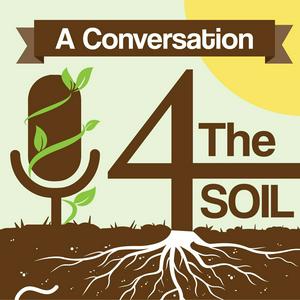
Descarga la app gratuita: radio.es
- Añadir radios y podcasts a favoritos
- Transmisión por Wi-Fi y Bluetooth
- Carplay & Android Auto compatible
- Muchas otras funciones de la app
Descarga la app gratuita: radio.es
- Añadir radios y podcasts a favoritos
- Transmisión por Wi-Fi y Bluetooth
- Carplay & Android Auto compatible
- Muchas otras funciones de la app


4 The Soil: A Conversation
Escanea el código,
Descarga la app,
Escucha.
Descarga la app,
Escucha.


